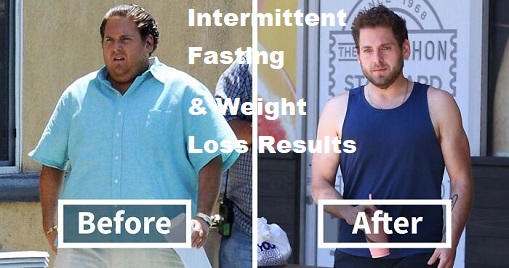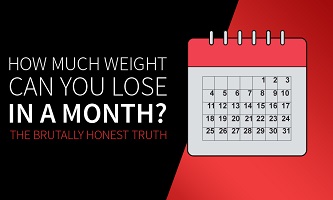Intermittent Fasting and Weight Loss Results
Intermittent Fasting and Weight Loss Results. Please Watch >>>>>

Results, results, results! Every time you log onto social media, you see someone’s incredible results from intermittent fasting. You might also ponder how long it took them to achieve their success.
Many people try fasting, don’t see results right away, and give up because they don’t realize there are benefits besides weight loss that are taking place.
Your motivation and long-term success depend on you being aware of the changes intermittent fasting entails and when they will happen.
You can cut calories and lose weight by implementing intermittent fasting.
A 2014 review found that over 3–24 weeks, intermittent fasting decreased body weight by 3-8%. If you’re looking at the rate of weight loss, intermittent fasting may result in losses of 0.55 to 1.65 pounds (0.25-0.75 kg) per week.
How long should you intermittently fast before you start to see results?
How long it takes to see results from intermittent fasting, how to track your progress, and the reasons why you may not be losing weight?
The exact time frame for seeing the benefits of intermittent fasting is unknown. However, there are typical times when measurable weight loss is likely, according to scientific evidence and reported personal experiences.
According to a review of 41 studies, an individual can lose 7 to 11 pounds on average over 10 weeks.
According to three-fourths of the studies, intermittent fasting on alternate days was followed.
This type of intermittent fasting allows you to eat whatever you want in one day with no calories or time restrictions. The following day, you are permitted to consume only 500 calories.
Other studies have shown that using the alternate-day fasting method can result in weight loss of 0.8% to 13% between two and twenty-six weeks.
Another study on the 5:2 method, which is similar to the alternate day fasting method but calls for eating no restrictions for 5 days and 500 calories for the following 2 days, revealed weight loss that was comparable to calorie restriction.
Intermittent Fasting and Weight Loss Results
Due to different metabolisms, levels of physical activity, dietary preferences, sleep schedules, stress levels, and toxic exposure, these results will differ from person to person.
The weight scale is not always the most accurate method of measuring progress, and it is only one.
Weight fluctuates throughout the day, and the weight scale only measures it at one particular moment in time.
Be consistent by weighing yourself at the same time every day if you want to use it to track your progress.
The best time is early in the morning. Experts concur that losing one to two pounds a week is safe and that this rate produces more long-lasting results.
Intermittent Fasting and Weight Loss Results
Fast for a longer period if losing weight is your top priority. The more stored fat you burn and the more effective your results will be the longer you fast.
According to the studies, there are several groups who shouldn’t intermittent fast. These people include:
- Women who are expecting or nursing.
- Minors younger than 12.
- People who have a history of eating disorders.
- Individuals with a body mass index, or BMI, under 18.5.
- According to studies, their fluctuating work schedules may make it difficult for them to follow fasting regimens.
- People who must take their medications at set times with food.
Summary
If you’re starting an intermittent fast, you might be wondering when you’ll start to see results.
That will depend on things like your physical health, level of stress, and how long you fast. Longer fasts result in quicker and more efficient results.
Be patient and don’t rely on the scale to tell you how you’re doing all the time. You can stay motivated by measuring your body and seeking out victories that don’t involve the scale.
If you aren’t losing weight, you can improve results by modifying your fasting duration and diet.
The problem is that intermittent fasting necessitates times when you don’t eat (duh, you get that).
Therefore, not everyone should do it, including expectant mothers and those who have a history of disordered eating.
While some people may experience weight loss as a result of intermittent fasting, you should consult your doctor about it first if you’re interested.
Is Intermittent Fasting Effective Without Exercise? Is it okay not to exercise while intermittent fasting?
Simply put, when people follow an intermittent fasting regimen without exercising, they lose weight, but a lot of it frequently comes from their muscle mass.
To support the body’s natural circadian rhythm, the best time to exercise while intermittent fasting is typically right after waking up or shortly thereafter.
Save your exercise for the next day because studies show that eating or exercising too close to bedtime can disrupt levels of deep and REM sleep
Additional physiological changes that take place when we fast
- Insulin levels drop, allowing the body to use glycogen, which is stored as long-term fat in the liver, as a source of energy instead of the food we eat.
- Human growth hormone (HGH) levels sharply rise: This may have a favorable impact on muscle growth.
- Mental clarity and cognition increase as less blood is diverted to the stomach to aid in the digestion of recently consumed food.
- As the body burns stored glycogen for energy, energy levels rise.
- When autophagy takes place, damaged and aged cells are disassembled and repaired.
FAQs about Intermittent Fasting and Weight Loss Results
How much weight can you lose by implementing intermittent fasting for a month?
The existing research; Intermittent fasting was effective for weight loss, with a typical loss of 7 to 11 pounds over 10 weeks, according to a systematic review of 40 studies.
The studies were highly variable, with subject counts ranging from 4 to 334 and lengths of follow-up from 2 to 104 weeks.
How to lose 5 kg with intermittent fasting?
Throughout the week, try an intermittent fasting regimen.
Choose a time of day when you will fast for 16 hours and eat all of your daily calories during a window of 8 hours.
A good illustration of this would be to eat brunch at 11 AM and dinner at 7 PM.
Why am I not losing weight on 16 8 fastings?
Shorter fasting periods don’t give your body enough time to enter ketosis. As a result, there won’t be much weight loss and the body won’t burn any fat that has been stored.
According to the findings of one study, a fasting window of 18–19 hours is superior to those between 12–17 hours in terms of weight loss.
Do you lose weight after 16 8 fastings?
The 16:8 diet group consumed 350 fewer calories per day than the control group, lost a modest amount of weight (about 3% of their body weight on average), and lowered their blood pressure.
Intermittent Fasting Results 1 Week | 16:8 Fasting Weight Loss Results 1 Week | What to Think About
Two things determine the kind of results you see in the first week:
- How are you ending your fast?
- Whether you are insulin resistant or not
You’re unlikely to lose any weight during the first week of intermittent fasting (or at all) if you’re breaking your fast with foods high in sugar and refined carbohydrates.
This is because intermittent fasting helps to naturally lower the storing hormone insulin during the fast, which is one of the main reasons it functions as a weight loss tool.
Fat burning is activated when insulin levels are low. Insulin resistance prevents fat burning.
Intermittent fasting results 1 month
Results of Intermittent Fasting Progress over a month;
If done correctly, the 16/8 type of intermittent fasting can help you lose up to 4–11 pounds, or 2–5 kg, in a month and keep it off.
You will probably also have more energy and better brain function in addition to this.
How much weight can I lose in 1-month of intermittent fasting?
If you follow the fast correctly and make sure it is in alignment with your mind, body, and soul, you can anticipate a good weight loss of 2 to 6 kg per month, excellent inch loss, and an improvement in energy and cognitive function.
16/8 fasting results 1 month
How Much Weight Loss Should One Expect? Intermittent Fasting Results 1-month progress;
If done correctly, the 16/8 type of intermittent fasting can help you lose up to 4–11 pounds, or 2–5 kg, in a month and keep it off. You will probably also have more energy and better brain function in addition to this.
How much weight can you lose in a month with intermittent fasting 16 8?
This is the maximum amount of weight loss possible with intermittent fasting.
If you follow the fast correctly and make sure it is in alignment with your mind, body, and soul, you can anticipate a good weight loss of 2 to 6 kg per month, excellent inch loss, and an improvement in energy and cognitive function.
How much weight can you lose with 16 8 fasting in a week?
Intermittent fasting may result in weight loss of 0.55 to 1.65 pounds (0.25-0.75 kg) per week when examining the rate of weight loss.
What is the best fasting schedule for weight loss?
Five days a week, eat normally, and two days a week, fast. Eat normally, but restrict your daily eating window to eight hours.
Skip breakfast, for instance, but eat lunch at 11 a.m. and dinner at 7 p.m.
Why am I not losing weight on 16 8 fastings?
Shorter fasting periods don’t give your body enough time to enter ketosis.
As a result, there won’t be much weight loss and the body won’t burn any fat that has been stored.
According to one study, a fasting window of 18–19 hours is superior to those between 12–17 hours in terms of weight loss.
What is the best intermittent fasting window to lose belly fat?
Which intermittent fasting is best for losing belly fat?
An eTRF window may be your best choice if you’re trying to better optimize an intermittent fast for belly fat loss.
How early this fast should begin to achieve the best results is still a little unclear according to studies.
How can intermittent fasting help me get a flat stomach?
Attempt intermittent fasting;
You can practice two to four 24-hour fasts a week or a 16/8 fast, which limits your eating window to 8 hours each day and frequently entails skipping breakfast or eating dinner earlier.
At what hour of the day do you burn fat during intermittent fasting?
After about 12 hours of fasting, fat burning usually starts to increase, and it peaks between 16 and 24 hours later.
Results of 4 weeks of 16:8 fasting
How much weight can you lose in 4 weeks with intermittent fasting?
A 2014 review found that over 3–24 weeks, intermittent fasting decreased body weight by 3-8%.
Intermittent fasting may result in weight loss of 0.55 to 1.65 pounds (0.25-0.75 kg) per week when examining the rate of weight loss.
20/4 intermittent fasting weight loss results in 1 month
How much weight can you lose on a 20:4 fast?
How Much Weight Can You Lose On An Intermittent Fasting Schedule Of 20/4?
It is challenging to estimate how much weight a person can lose on the warrior diet because there is little research on this diet.
To lose weight healthily, you should be able to lose no more than 1 to 2 pounds per week.
How long does it take to see results from 20 4 intermittent fastings?
You’ll probably notice less bloating and a tighter, slimmer look and feel to your midsection after the first week of intermittent fasting.
Some people will experience weight loss by week two, but if your weight hasn’t changed, don’t give up. You should notice changes if you keep going for another 4-6 weeks.
How soon does the body begin to burn fat while fasting?
About twelve hours
After about 12 hours of fasting, fat burning usually starts to increase, and it peaks between 16 and 24 hours later.
How do I know when my body is in fat-burning mode?

The most obvious indication that you are burning fat is weight loss or an inch loss. It results in a slimmer appearance and more defined muscles.
You are becoming fitter as your exercise endurance grows. Your level of physical activity has increased as a result.
Intermittent fasting results 1 week
You’ll probably notice less bloating and a tighter, slimmer look and feel to your midsection after the first week of intermittent fasting.
Some people will experience weight loss by week two, but if your weight hasn’t changed, don’t give up.
Continue for another four to six weeks, and changes ought to appear.


